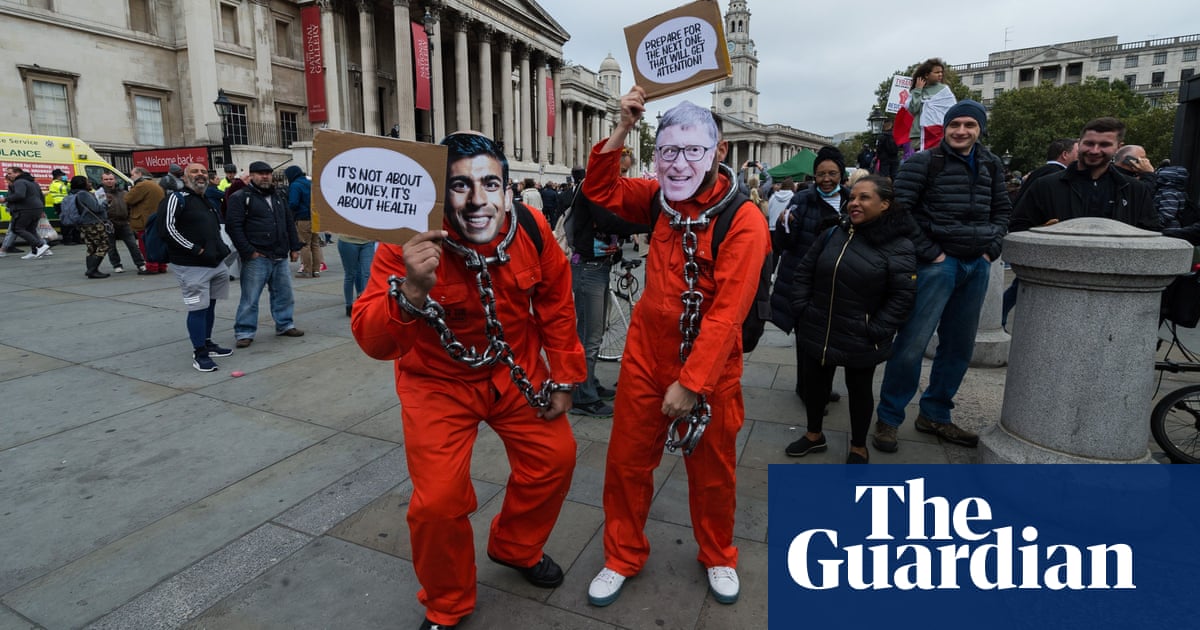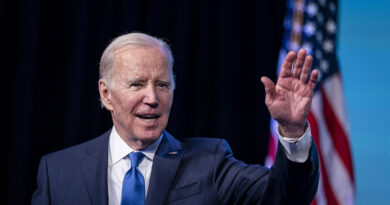Coronavirus: anti-vaxxers seek to discredit Pfizer’s vaccine

Anti-vaxxers have seized on the promising results of a new coronavirus vaccine, attempting to discredit the Pfizer/BioNTech development on social media within hours of it being announced.
After the news broke that interim analysis suggested the vaccine had 90% effectiveness, “Bill Gates” began trending on Twitter The Microsoft founder has been one of the most popular targets for conspiracy theorists because of his work on vaccines.
While some were poking fun at the conspiracy theories, others subscribed to views expressed by the disgraced US researcher Dr Judy Mikovits in the viral Plandemic video, in which she blames the coronavirus outbreak on a conspiracy led by big pharma, Gates and the World Health Organization.
The conspiracy was repeated by a caller to BBC Radio 2’s Jeremy Vine show on Tuesday, who claimed “Bill Gates is behind this” and accused him of seeking material gain.
Just over an hour after Boris Johnson finished a press conference in which he sought to manage expectations following the interim results for the vaccine – which must gain regulatory approval before it is rolled out – Louise Creffield from Save Our Rights UK, which has campaigned against lockdown, made a Facebook live response.
In the video, she said: “There’s been no safety data yet, it hasn’t been peer-reviewed, there is a lot of indemnity to it and the MHRA [Medicines and Healthcare products Regulatory Agency], who are going to be the ones that approve it or not, we have found out, well, one, they’re a government body so they are paid for by the government, and two they’ve received nearly £1m in funding from the Bill and Melinda Gates Foundation. So the likelihood that they are a robustly independent body like Boris Johnson said is slim to none.”
Johnson was explicit in saying there was no safety data for the vaccine and it has not been peer-reviewed.
Creffield also voiced scepticism about the speed at which the vaccine has been developed. She suggested the “presence of the army is coercive” – a reference to Johnson being flanked at the press conference by Brigadier Joe Fossey, who was there to talk about military support for mass testing in Liverpool.
Heidi Larson, director of the London-based Vaccine Confidence Project, said: “There’s a lot of language out there about speed but we haven’t really talked about why things are faster and it’s not because we’re shortcutting old processes.
“These new Covid vaccines are on brand new platforms. There’s never been an mRNA vaccine [which uses the genetic code rather than any part of the virus itself] before for humans. So, this Pfizer vaccine, for instance, would be absolutely brand new, made in a new way.”
While social media companies have removed some of the most extreme content – in relation to the Plandemic video for instance – Larson said it was difficult for them to police content that was more ambiguous or posted by organisations with innocuous-sounding names, or to prevent it being moved to another platform.
“I think the biggest problem with all these misinformation efforts is that we’re not there with alternatives and we’re not listening,” she said.
“Anti/sceptical vaccine individuals and groups are actively seeking out people who are questioning and hesitant, and they are right there, waiting to say: ‘You’re right, you have a good reason to be concerned, there is a problem.’ We’re just saying ‘Don’t worry’ and not really saying: ‘Tell me about your concern.’”
Prof Melinda Mills, from the University of Oxford and lead author of Covid-19 vaccine deployment, a report published on Tuesday by the British Academy and the Royal Society for the Set-C (Science in Emergencies Tasking: Covid-19) group, echoed Larson’s views.
“Vaccines are one of the most amazing discoveries … they’ve saved millions of lives and we often forget that because we’re not surrounded by measles and polio and smallpox. But I do think so much focus on the medical science and so much focus on the vaccines has left us with a real blind spot into how people see them.”
Creffield said the Pfizer vaccine being based on new technology increased the need for scrutiny. “I’m not about feeding conspiracy theories – I’m just about making sure that we have the full facts of the matter, including about where these things are coming from,” she told the Guardian.
“If there’s questions on any of those answers … that doesn’t mean necessarily it’s untrustworthy and that you shouldn’t take part in whatever it is. It just means you need to satisfy that … nothing untoward is going on.”
*** This article has been archived for your research. The original version from The Guardian can be found
***


